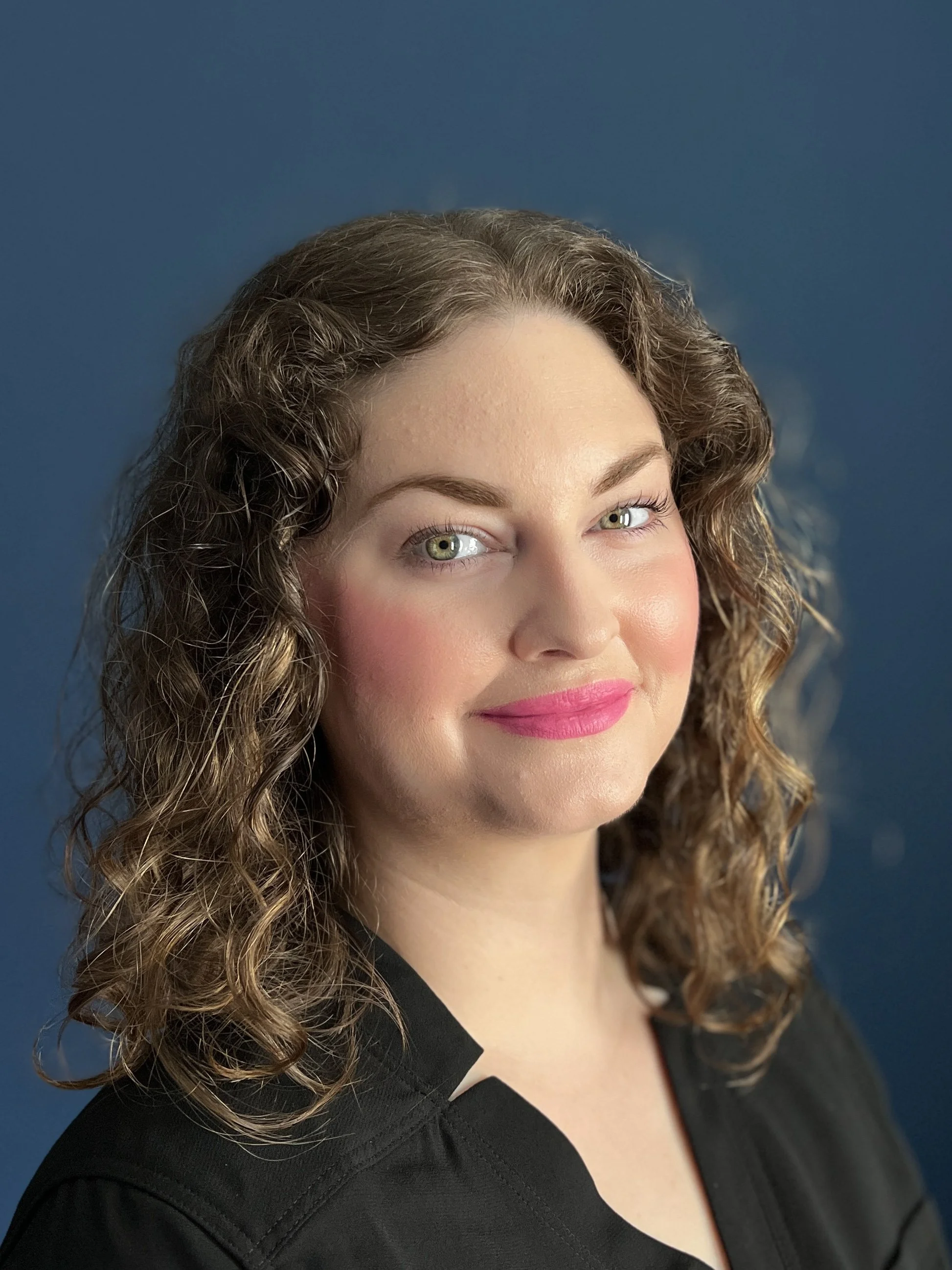Trauma-Sensitive Virtual Therapy for Neurodivergent Adults in Texas

Every person has unique needs. Therapy should reflect this.
Here at Neuro Clarity Counseling, LLC you will receive the individualized therapy experience you deserve.
There is no script to adhere to.
Instead, we collaborate to determine the therapeutic approach which works best for you.
Working with Cherish Graff, LPC you will experience a truly individualized and eclectic approach.
If you recognize the typical therapy methods aren’t the right fit for you.
If you want to work with a therapist who will modify therapy methods to best fit your needs.
If you value working with a therapist who practices from lived experience.
If you need your therapist to be LGBTQIA+ inclusive and Neurodiversity Affirmative.
We may be a good fit to work together.
To have any of your general questions answered, the FAQ page has an abundance of information for you to peruse.
On the services page I go more in depth on explaining my professional experience and the specific therapy modalities I work within and pull from.
The contact page (linked at the button below) features a HIPAA compliant, confidential google contact form where you can reach out to schedule a free consultation (which is basically an informal introduction video call) or an intake appointment (which is an actual therapy appt.)
Areas of focus:
When I say I work with Neurodivergent adults, this is an umbrella term which covers all neurotypes (usually referred to as disorders or diagnoses) from Anxiety, Autism and ADHD to Bipolar, OCD and PTSD. All neurological differences which need accommodation and support to access the neuronormative world in the way other people are able to access without difficulty makes us Neurodivergent.
-
The reason I say I focus on working with Neurodivergent adults with complex trauma is those of us with brains wired in ways not well understood by and supported by our society experience trauma in a different way and require a different approach to work through this.
See the ‘services’ page to read more about how I approach trauma therapy.
-
The mix of grief and relief we experience once we learn we are Neurodivergent is unlike any other experience.
After learning we are Neurodivergent -
we can feel simultaneously grateful to have an answer as to “why” we experience life the way we do, while being left with even more questions.Helping clients identify your neurotypes and how each impacts the way you experience the world is one of the most important aspects of Neurodivergent affirming therapy (in my experience as a client and therapist).
I have personally benefited from learning to recognize which experiences of mine are due to being Autistic, or an ADHDer or when it’s ‘an OCD thing’ in my own therapy.
Understanding how our brain and body actually work helps us better understand ourselves, our needs and how to best support ourselves.
Recognizing Neurodivergent folks are more likely to be LGBTQIAP2S+, I also support clients in exploring their gender and sexual identities.
-
It may seem strange to specifically target burnout in a therapy practice (and maybe it is) however I recognize how Neurodivergent people are more likely to experience burnout.
Whether burnout is experienced in the short term or long term, having learned ways to prevent and also work through this for myself and others, I want to offer support in this area.
You can read more about how I approach working with burnout on the ‘services’ page.
-
Pre-menstrual dyshoric disorder is widely missed in menstruating folks. It is a much more common experience than we can know due to it being dismissed and misunderstood.
I happen to live with PMDD and because of this, I have spent many hours scouring the interner to learn more about others lived experience as well as the most recent research to best support clients living with PMDD.
While medical doctors and other practitioners may be beneficial for the hormonal component to PMDD, I have personally found specific therapy techniques have helped me work through some of the worst of the emotional and relational impact.
If you suspect you may live with PMDD (or know you do) I’d be honored to help support you find ways to improve life with PMDD.
If you would like to learn more about how I approach supporting clients living with PMDD, there is more in depth information on this topic on the “Services” page.
-
As a parent who has worked with Neurodivergent kids for over two decades, I am well-versed in the need for a significant paradigm shift in thinking in order to best understand and support Neurodivergent kids.
Knowing the vast majority of parenting advice does not apply to raising Neurodivergent kids, it is ridiculously difficult for parents to find what is supportive of their unique childs needs. There is a lack of support in making the necessary changes in how you parent your Neurodivergent child, which makes it all the more difficult.
I bring lived experience as well as professional experience to help resource parents of Neurodivergent kids (who, honestly may be Neurodivergent yourselves).
-
After learning I am Autistic, an ADHDer and more - I still didn’t have answers for many of my more debilitating and frustrating experiences. I would attribute them to ADHD, executive functioning, etc. but it never seemed to be fully explained by any combination of these.
I’d recognized patterns in my experiences and those of people I worked with which were not fully explained by any neurotype I knew of, at the time. I later discovered the term ‘demand avoidant’ and went on to learn about Pathological Demand Avoidance aka Pervasive Drive for Autonomy and it was a “Eureka!” moment for many of my clients and other people in my life, however I was still in denial about it for myself.
That is, until I read lived experience accounts of more ‘internalized’ presentations of PDA. Then I knew: I was a PDAer, too. Flash forward to years later and I have spent countless hours pouring over all of the information I could find on it from lived experience to the little bit of research which exists on the topic.
Please note: while PDA is not recognized by the DSM, there are practitioners in the UK, USA and Australia who are diagnosing “Autism with a PDA Profile”. I understand the arguments for and against this, however as a practitioner it is my duty to present the documented research and whatever anecdotal evidence a client is open to learning from and collaborate on how to proceed.
I support adult PDAers (including suspected and questioning) as well as parents of PDAers, as PDA is a ‘whole other animal’ and is very little understood by most mental health practitioners (as of now, at least).
To learn more about how I work with PDA, please visit the “Services” page.
Therapy for Autistic Adults in Texas
As an Autistic therapist, Cherish Graff, LPC has both lived and learned experience in working with and supporting Autistic clients in therapy.
The Neurodiversity Affirmative approach Cherish uses in therapy specifically recognizes the need for understanding of areas of support which may need to change to best help reach therapy goals.
Cherish practices with the understanding there are specific differences in Autistic neurology and physiology which need to be understood and accommodated in order for therapy to be effective.
“As an Autistic, ADHDer, learning about Pathological Demand Avoidance as an adult has made a huge difference in how I view myself as well as clients who have had difficulty understanding why certain tasks and hobbies were so difficult to access. Trying to recognize these challenges through the lens of trauma, executive functioning differences, etc. didn’t quite fit.
Working with a better understanding of PDA, I now have the foundational understanding of what has been underlying the distress many of my clients have experienced. It also explains why certain therapy tools and techniques were not effective in the ways they were supposed to be.” - Cherish Graff, LPC
Pathological Demand Avoidance -
Therapy for PDA Needs in Texas



